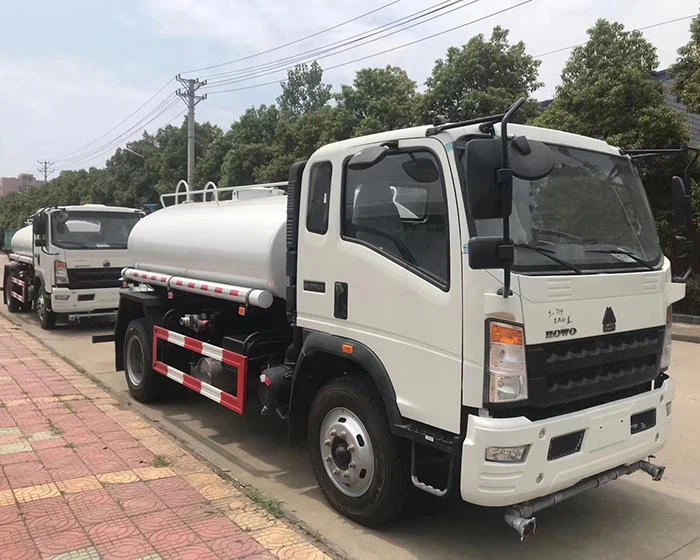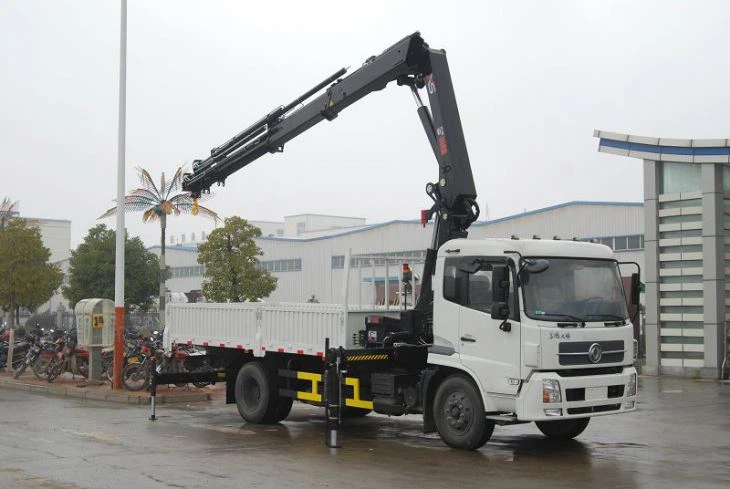How Much Can a Garbage Truck Hold? Understanding Capacity, Types, and More

Garbage trucks play a crucial role in waste management and sanitation services. The capacity of these vehicles is essential for determining how effectively they can serve communities. In this comprehensive article, we will explore the various aspects of garbage truck capacities, including their types, average load limits, factors affecting their capacity, and practical considerations for waste disposal. With detailed information, practical tips, and real-world examples, this article aims to provide a thorough understanding of how much a garbage truck can hold.
1. Understanding Garbage Trucks
1.1 What is a Garbage Truck?
A garbage truck is a specialized vehicle designed to collect and transport solid waste from residential, commercial, and industrial areas. These trucks are equipped with various features to improve efficiency and safety, including automated collection systems, compactors, and different types of containers.
1.2 Different Types of Garbage Trucks
Garbage trucks come in various designs and configurations, each suited for specific waste collection tasks. The most common types include:
- Front Loader Trucks
- Rear Loader Trucks
- Side Loader Trucks
- Roll-Off Trucks
1.3 Key Features of Garbage Trucks
These trucks are designed with several important features, including:
- Compactors for reducing waste volume
- Automated arms for efficient collection
- Containerized waste systems for easy and quick loading
2. How Much Can A Garbage Truck Hold?
2.1 Average Capacity of Common Garbage Trucks
Generally, the capacity of a garbage truck varies based on its type and size. Here are average capacities for common garbage trucks:
| Truck Type | Average Capacity (Cubic Yards) |
|---|---|
| Front Loader Truck | 6 to 8 |
| Rear Loader Truck | 10 to 30 |
| Side Loader Truck | 8 to 14 |
| Roll-Off Truck | 10 to 40 |
2.2 Conversion of Cubic Yards to Weight
It’s essential to know that cubic yards do not directly translate to weight because different types of waste have different densities. Generally:
- Household waste = Approximately 250 to 450 pounds per cubic yard
- Construction debris = Approximately 1,000 to 1,200 pounds per cubic yard
3. Factors Affecting Garbage Truck Capacity
3.1 Truck Size and Model
The design and engineering of the truck significantly influence its capacity. Larger trucks can typically hold more waste.
3.2 Type of Waste Being Collected
The density of waste plays a significant role in determining how much machinery can safely transport. Heavier materials reduce the volume that can be loaded.
3.3 Local Regulations and Weight Limits
Most municipalities have regulations that limit how much weight a truck can carry on public roads. Knowing these limits is crucial for waste collection services.
3.4 Frequency of Collection
How often a truck services an area also affects its effective capacity. More frequent collections may mean less waste accumulation.
4. Practical Examples of Garbage Truck Usage
4.1 Residential Waste Collection
In residential areas, a typical rear loader truck may collect between 10 and 20 cubic yards of waste per pick-up. This translates to about 2,500 to 9,000 pounds of waste.
4.2 Commercial Waste Collection

Businesses often utilize front loader trucks that accommodate bulkier waste. These trucks can handle specialized waste products, leading to higher load limits.
4.3 Construction and Demolition Sites
Roll-off trucks are prevalent at construction sites. Their capacity ranges from 10 to 40 cubic yards, making them ideal for bulky materials.
5. Tips for Efficient Garbage Collection
5.1 Proper Loading Techniques
To maximize the capacity of a garbage truck, proper loading techniques should be employed. For instance, ensuring materials are compacted can help to use the space more effectively.
5.2 Regular Maintenance of the Truck
A well-maintained truck operates efficiently and can consistently reach its load capacity. Regular inspections are necessary.
5.3 Implementing a Waste Sorting System
Implementing a waste sorting system can help in segregating heavy and lighter materials, which can optimize load limits.
6. Environmental Considerations

6.1 Impact of Garbage Trucks on the Environment
Garbage trucks contribute to greenhouse gas emissions. Understanding their load capacities can help optimize routes and reduce emissions.
6.2 Innovations in Waste Management
Many companies are adopting eco-friendly trucks that are more efficient environmentally. These innovations can also impact how much load the trucks can handle effectively.
7. Future Trends in Garbage Truck Capacities
7.1 Technological Advancements
The growing interest in automated waste collection and smart waste management strategies will likely influence future garbage truck designs and capacities.
7.2 Changes in Waste Generation Patterns
As recycling and composting efforts grow, the amount and type of waste collected may change as well, affecting truck capacities and designs.
8. FAQ Section
8.1 What is the average weight a garbage truck can carry?
The average weight a garbage truck can carry typically ranges from 10,000 to 30,000 pounds, depending on the truck type and local regulations.
8.2 How often should garbage trucks be emptied?
It depends on the area and volume of waste generated. Typically, residential areas are serviced once a week, while commercial areas may require more frequent service.
8.3 Do garbage trucks have different capacities based on waste type?

Yes, different types of waste have different densities, which affects the overall volume that can be loaded onto the truck.
8.4 What type of garbage truck is best for construction sites?
Roll-off trucks are often the best choice for construction sites due to their ability to handle large volumes of bulky waste effectively.
8.5 How can I reduce the amount of waste my garbage truck collects?
Implementing recycling programs, composting organic waste, and reducing overall consumption can significantly lower the volume of waste collected by garbage trucks.
8.6 Are there weight limits for garbage trucks on public roads?
Yes, most municipalities have regulations dictating the maximum weight and load limits for vehicles traveling on public roads, including garbage trucks.
